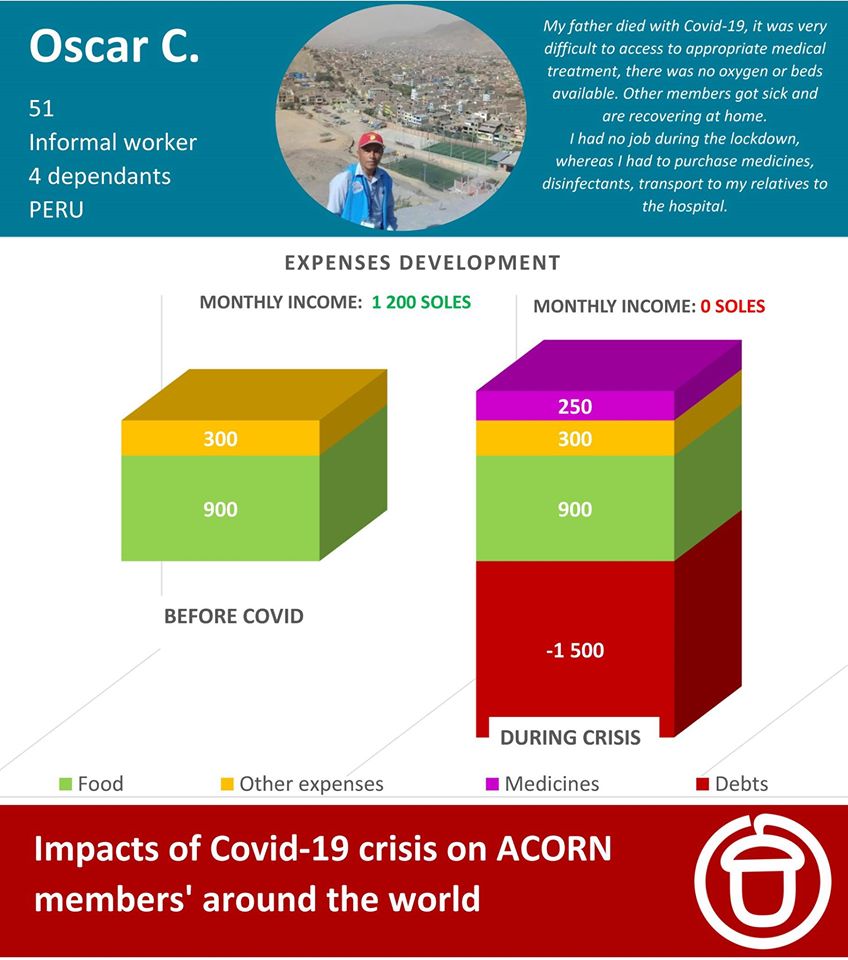Global social protection in times of global crisis
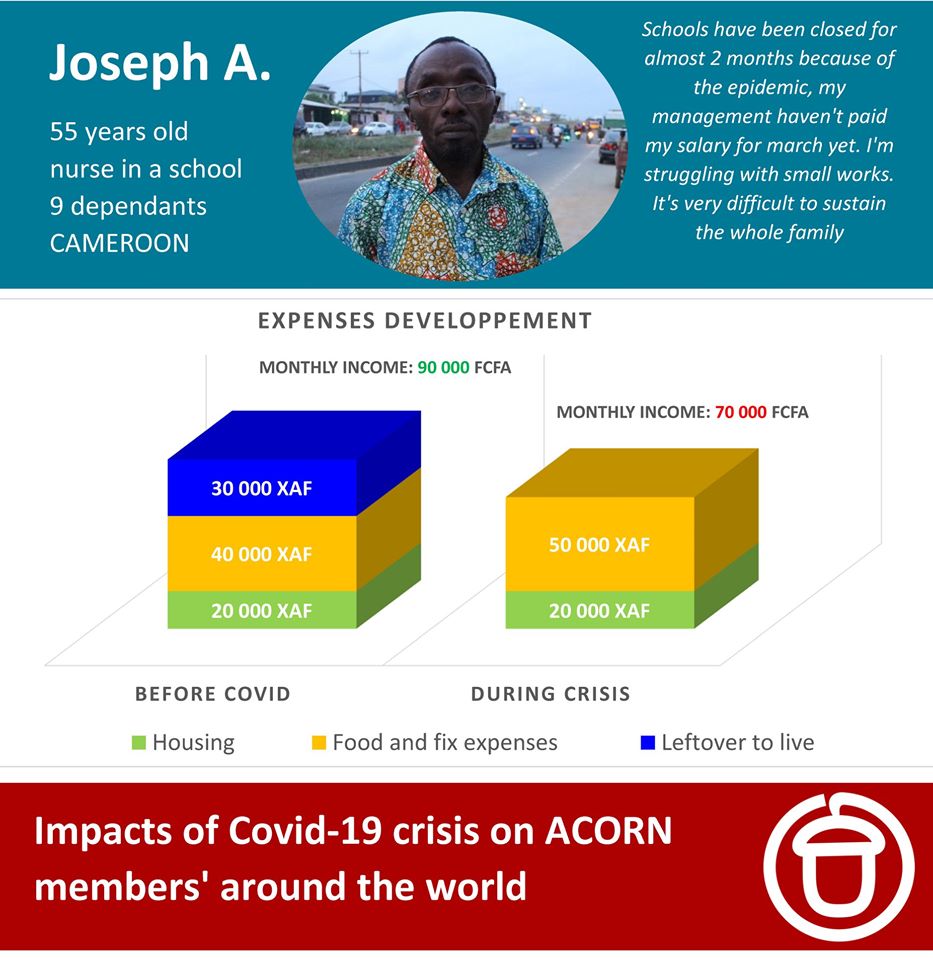
We low-income families are living in the popular areas of Douala, Toronto, Mumbai, Paris, Lima, Manchester, Tunis, New Orleans and Edinburg are victims of the health crisis. We lost our job, we lost much of our income. Yet we still have to pay our rent, our electricity bills and buy something to feed our families. As the lockdown comes to an end, we are tens of millions of people to find ourselves in rent debt in France, the UK, the United States or Canada. This is how we are reduced to misery and hunger.
If we stay alone, we will remain in misery. That’s why we collectively organize ourselves as citizens’ unions and workers’ unions to help each other, claim, act and defend our rights.
Major public aid has been made available in India, Scotland, or Canada. That’s not enough. In France, the state has unlocked a sum of money 7 times greater (€ 7 billion) to help the Air France airline than for exceptional aid to families in great difficulty (€ 1 billion).
In Tunisia, aid of 200 dinars (€ 63) covers only a small part of the loss of income, while the price of semolina doubled between March and May 2020.
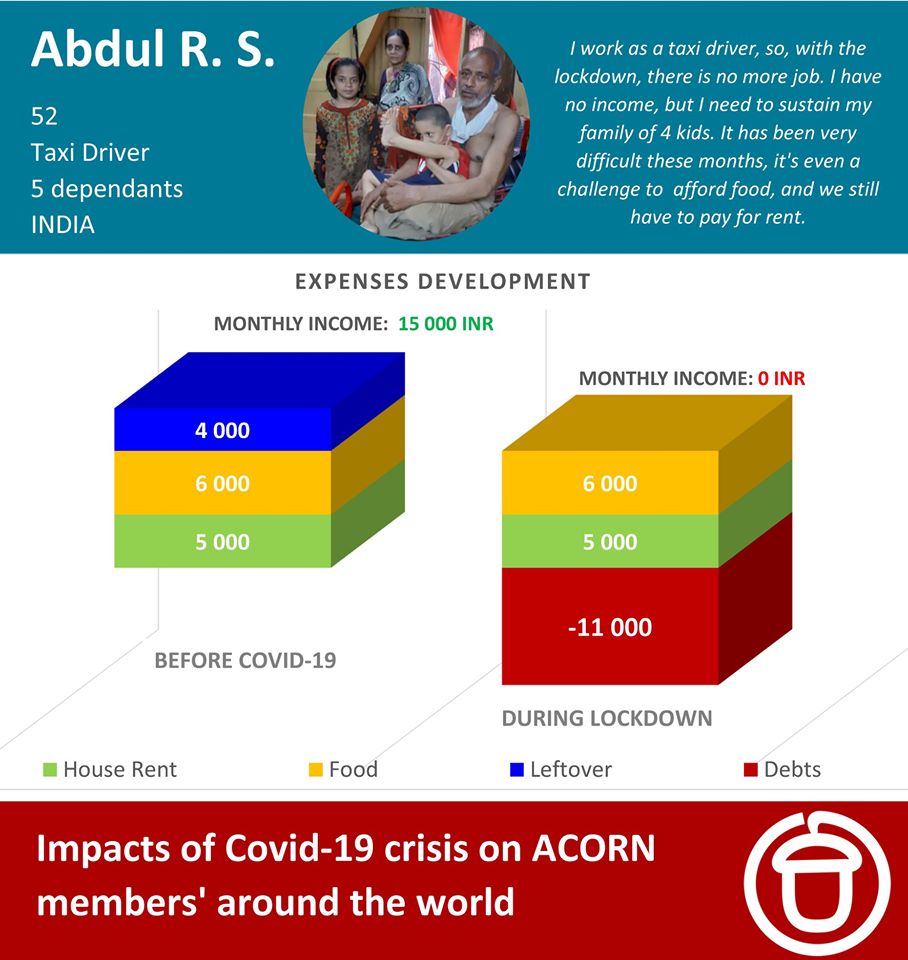
We call on our states to guarantee the minimum social justice by saying:
• Cancellation of rent debts due to the lockdown period
• Prohibition of expulsion for the next 12 months
• The establishment of a guaranteed minimum income of crisis for all families in need.
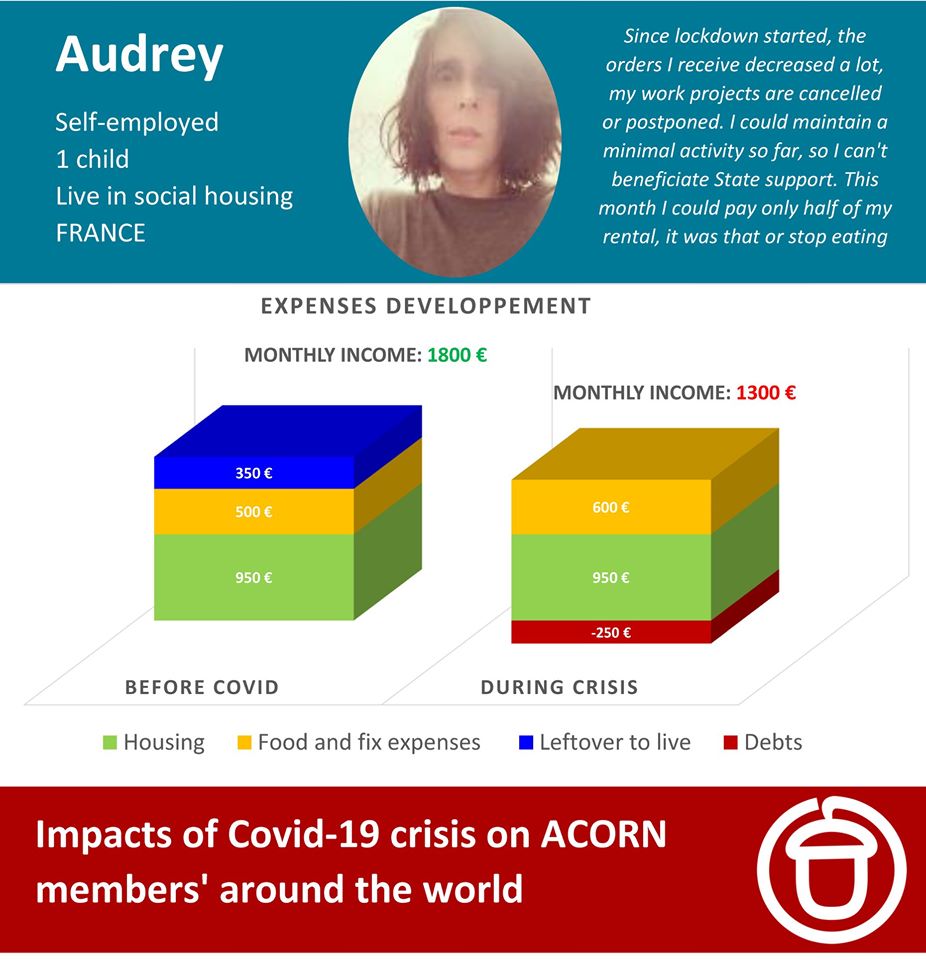
But it’s a global crisis. A global crisis requires a global response. All poor families in Asia, Europe, Africa, Oceania or the Americas have the right to be protected from health risks, and from the risk of debt and spiral of poverty caused by this crisis.
It’s time to imagine forms of global social protection. Social funds fed by the World Bank are now national and limited to a few countries. A first global social background can be created during this health crisis and the resulting economic and social crisis. Social protection has been built in each country as a set of collective pension mechanisms in the face of social risks. As the social costs of the next pandemics and the climate crisis are combined worldwide, it is time to think about social protection on this scale.
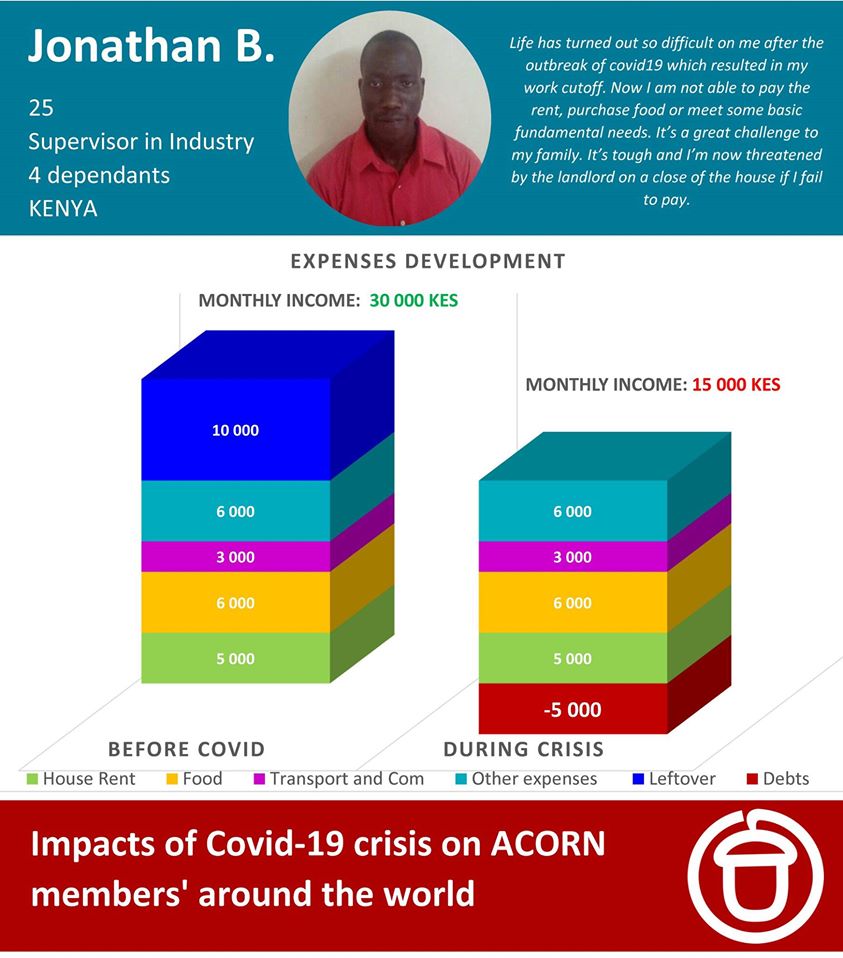
Powerful redistribution mechanisms are needed in times of crisis more than any time. Public arbitrations must be decisions of the people, by the people, for the people. At the local, national or global level, the people must rule.
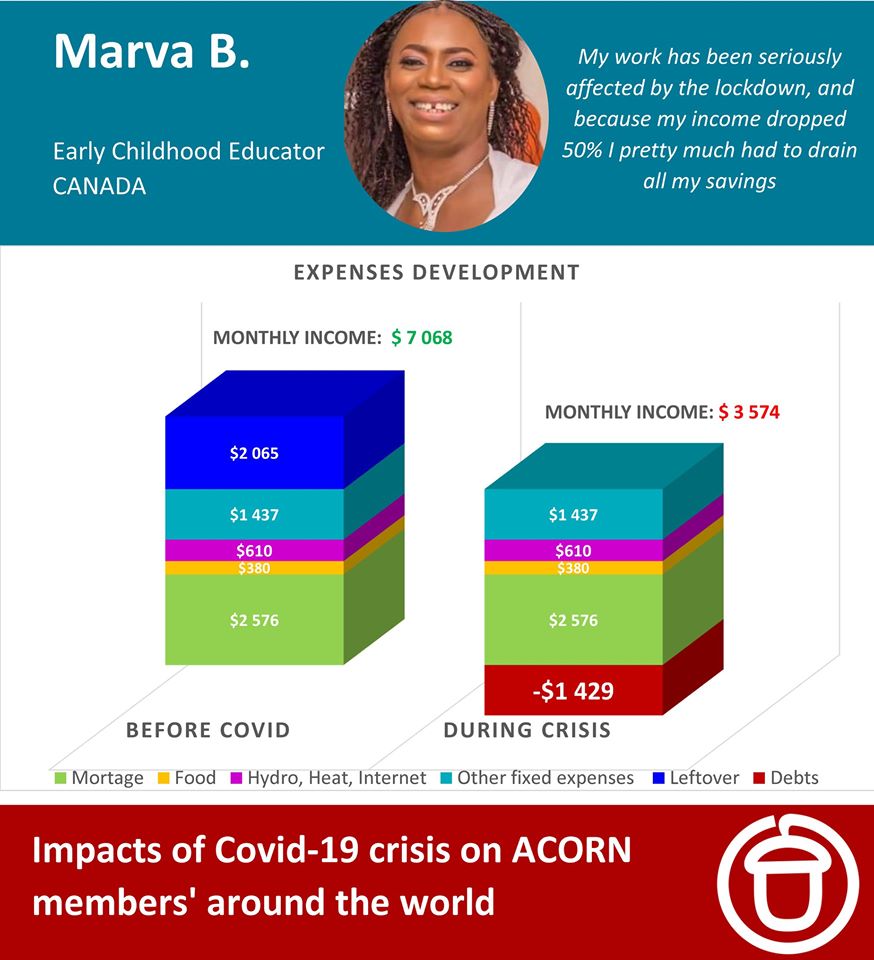
SIGNATORIES SIGNATORIES
• Anita Drummond, ANEW, ACORN Pittsburgh
• Daniel Kaiiru, ACORN Kenya
• Fatiha Mammad, Citizen Alliance, ACORN France
• Henrietta Collins, Local 100, United Labor Unions, Arkansas
• Luis Delgado, ACORN Peru
• Marva Burnett, ACORN Canada
• Mirian Lily Paz Matute, ACORN Honduras
• Mohamed Khaled Nasra, El Comita, ACORN Tunisie
• Nathaniel D. Monway, Justicitiz, ACORN Liberia
• Olivier Ndedi, onestensemble, ACORN Cameroon
• Sonja Coquelin, Living Rent, ACORN Scotland
• Tom Renhard, ACORN UK
• Vinod Shetty, ACORN India
• A Community Voice, ACORN Louisiana
